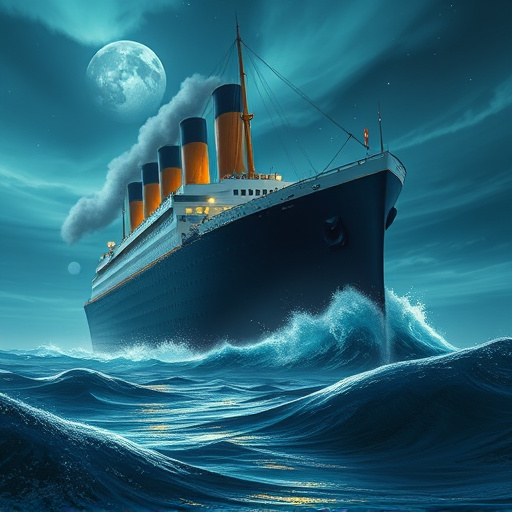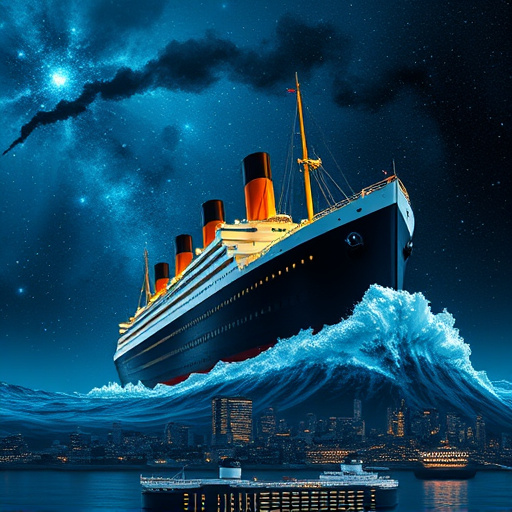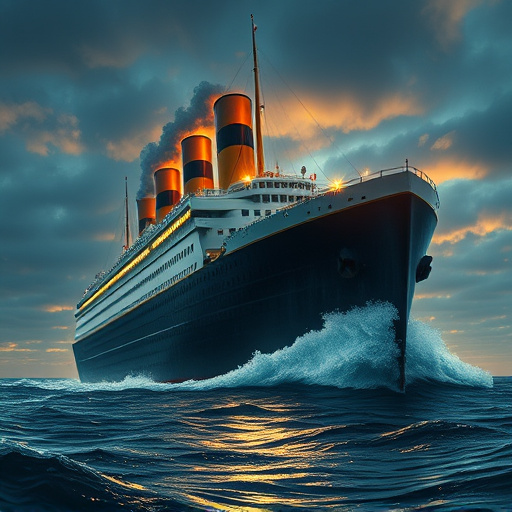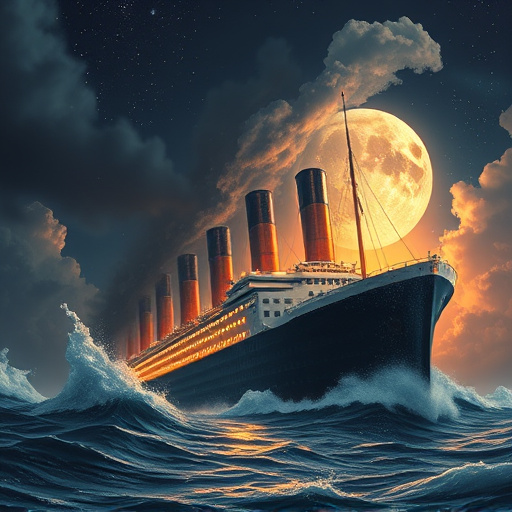Unraveling the Titanic’s Story: Historical Journey, Impact, and Enduring Legacy
The Titanic, an iconic ship that captivates imaginations even today, stands as a poignant reminder o…….
Welcome aboard as we embark on a comprehensive journey through the world of boats, a subject that has captivated humans for centuries. A boat is more than just a floating vessel; it represents freedom, exploration, and the human ingenuity to navigate bodies of water. This article aims to provide an in-depth exploration of boats, their diverse applications, and their significant impact on global culture, economy, and technology. By delving into various aspects, from historical context to future trends, we will uncover why boats are not just a mode of transportation but a catalyst for progress and connection across the globe.
Definition:
A boat is a watercraft designed primarily for travel on rivers, lakes, seas, or other bodies of water. It varies in size, shape, and purpose, ranging from small recreational vessels to massive cargo ships.
Core Components:
Historical Context:
Boats have been an integral part of human civilization since ancient times. From the primitive log boats used by early hunters to modern high-speed yachts, boats have evolved to fulfill diverse needs. The development of sailing vessels allowed for long-distance trade and exploration, shaping the course of history. For instance, Christopher Columbus’s voyages across the Atlantic in the 15th century were made possible by advanced sailing ships, opening up new worlds and cultures.
In the modern era, boats have found applications in various sectors, including transportation, fishing, recreation, and military operations. The late 20th century saw a surge in boat building and technology, with advancements in materials science leading to lighter, stronger, and more efficient vessels. Today, boats are built using advanced composite materials, providing improved performance and reduced environmental impact.
The influence of boats is deeply intertwined with the global landscape, with varying trends and impacts across regions:
North America and Europe: These regions have a rich maritime history and are home to some of the world’s largest shipyards. Countries like the United States, Germany, and the Netherlands are known for their advanced boat building industries, producing high-performance sailing yachts and motorboats. The popularity of recreational boating in these areas has led to a thriving marine tourism sector.
Asia: China, Japan, and South Korea have emerged as significant maritime powers with vast shipbuilding capabilities. These nations dominate the market for mass-produced fishing boats and commercial vessels, catering to regional and global trade demands. In recent years, there has been a growing trend of luxury yachting in countries like Dubai and Singapore, attracting high-net-worth individuals from around the world.
Latin America: Countries along the Caribbean coast, such as Mexico and Costa Rica, have thriving sailing communities and are popular destinations for cruising yachts. The region’s stunning coastal landscapes and vibrant marine ecosystems attract boaters seeking adventure and relaxation.
Africa: With vast coastlines on both the Atlantic and Indian Oceans, Africa offers immense potential for boating activities. Countries like South Africa and Kenya are developing their maritime industries, including boat building and marine tourism. The continent’s diverse marine life also attracts research vessels and ecotourism ventures.
Global Trends:
The boating industry plays a significant role in global economic systems, influencing various sectors:
| Sector | Impact |
|---|---|
| Shipping and Transportation: Boats and ships are vital for international trade, transporting goods across oceans and rivers. According to the International Maritime Organization (IMO), world seaborne trade reached 11.6 billion tons in 2021, highlighting the industry’s economic importance. | |
| Tourism: Marine tourism is a growing sector, with boating activities attracting visitors to coastal destinations worldwide. From sailing cruises to fishing charters, these experiences contribute to local economies and create employment opportunities. | |
| Fishing Industry: Commercial fishing boats play a crucial role in providing food security and sustaining local communities. The global fishing industry generates approximately $205 billion annually, as per the Food and Agriculture Organization (FAO). | |
| Recreational Boating: This sector includes private boat ownership and leisure activities like sailing, water skiing, and fishing. It contributes to personal well-being and stimulates local economies through marine-related goods and services. | |
| Manufacturing and Construction: Boat building and repair facilities create jobs and drive economic growth in coastal regions. The manufacturing of marine equipment, engines, and accessories also contributes to related industries. |
The boating industry has embraced technological innovations, leading to significant improvements in safety, efficiency, and performance:
While boats have brought immense benefits, their environmental impact cannot be overlooked:
Addressing these issues is crucial for the industry’s long-term sustainability. Many manufacturers and organizations are adopting eco-friendly practices, such as:
The future of boating is poised for exciting developments, driven by technological advancements and evolving consumer preferences:
Boats are not just vessels; they represent humanity’s enduring spirit of exploration, adventure, and connection with the natural world. From historical milestones to modern technological marvels, boats have shaped our world and continue to do so. As we look ahead, the boating industry stands at a crossroads, facing challenges and opportunities alike. Embracing sustainable practices, technological advancements, and responsible marine management will ensure that boats remain integral to our global community for generations to come.
By exploring the historical context, global impact, economic considerations, and future trends, it becomes evident that boats are not just objects but catalysts for progress, commerce, and cultural exchange across our vast aquatic landscapes.

The Titanic, an iconic ship that captivates imaginations even today, stands as a poignant reminder o…….

“The Titanic, a name that echoes through history, stands as one of the most famous maritime disaster…….

The Titanic, a legend in maritime history, captivated the world with its grandeur and tragic fate. T…….

“The Titanic, a name that resonates with grandeur and tragedy, continues to captivate the world over…….
Boats, from small rowboats to large cruise ships, are versatile watercraft used for transportation,…….
Boats, versatile watercraft, range from small rowboats to massive cargo ships, serving diverse purpo…….
Boats, adaptable watercraft used on rivers, lakes, and seas, cater to diverse needs. From small rowb…….
Boats, versatile watercraft available in various shapes and sizes, serve diverse purposes globally……..
Boats, versatile watercraft designed for various purposes from fishing and recreation to military op…….

Boats, versatile watercraft with diverse applications, range from recreational vessels like fishing…….